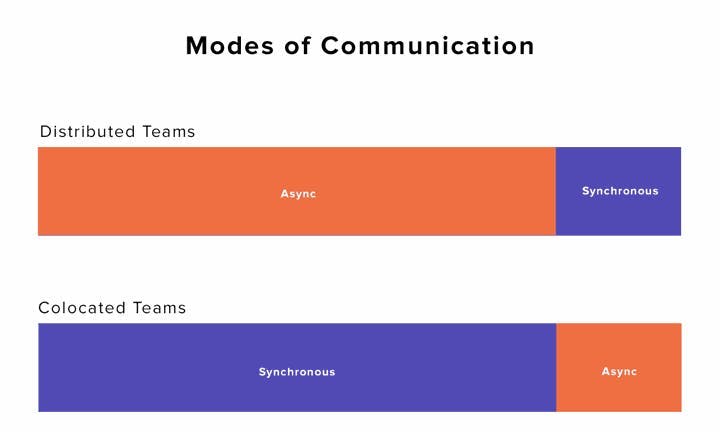The future of remote work is flexible work, here's why

Over the last couple of weeks, Twitter and Square announced that they are permanently offering remote work as an option for employees. Many in the industry perceive this to be a bell-weather of things to come, especially with the Covid-19 uncertainty.
Earlier today, I watched the CEO of Redfin discuss how people in major metros are searching for more affordable housing in smaller cities (see data). This sends a strong signal of lifestyle change, which I'd argue is driven by the reality of working from anywhere. I did the same thing five years ago when I moved from Boston to Portland, Maine. This was only possible because I could bring my job with me.
At this point, it seems clear that remote work is here to stay, at least for the unforeseeable future. Remote work appears to have network-effect like characteristics. The more people who work remotely, the more companies will offer it as an option, which increases the number of remote opportunities. The flywheel grows over time.
Many proponents of remote work are elated about this tectonic shift that's happening. I'm cautiously optimistic. As I've written in other posts, working from home by itself is not necessarily a better way of working.
In this post, I'd like to share why remote work is a means to an end. Working from home is not necessarily a better way of working. A flexible work environment is the end game that every company must aim towards if we want to thrive in this new mode of work.
Working remotely isn't necessarily a better way to work
Let's zoom in for a second. Right now, I'm working from my home office. Is doing work from my house a better way of working compared to working at the office? Is the power of remote work about being able to work from a distant location?
I would argue that the answer is NO.
People don't love remote work because they can work from a room in their house. In fact, working remotely has issues that needs to be addressed head on. I'll list a few problems below:
1.) It can be socially isolating
Humans are social creatures. For many, the office provides real-world social interaction, especially in a world where more and more of our conversations happen online.
I've worked remotely for many years, but being stuck working from home for the past couple of months has been a bit draining socially. I can see why people would want to go back to the office.
2.) Zoom fatigue is real
According to Microsoft, the shift to working from home increased the number of meetings by 10%, or three more meetings every week.
Right now, people are talking about Zoom fatigue, which is a very real thing. As a proponent of remote work, the reality is that it's easier to communicate in-person vs. a video call. There's a natural flow when you are face-to-face and you don't have to deal with latency issues.
3.) Overwhelmed by constant messages
Additionally, people are being overwhelmed by chatter through workplace chat tools like Slack and Teams. For example, Microsoft research indicates that managers are sending 115% more messages.
Flexible work is what makes remote work powerful
The power of remote work is the flexibility that it can provide if implemented correctly. The more a team or company works remotely, the more they start to realize that if they evolved operating procedures, they could unlock a way of working that is not filled with Zoom fatigue, constant chatter, or social isolation.
Forward-thinking companies understand this appeal and begin to unbundle presence (physical or digital) from work and output. In other words, moving the ball forward at work does not fundamentally require being in the same location at the same time.
The beauty of this approach is that you can reduce many of the problems that I've listed above. For example:
- Social isolation - a flexible work environment means you can take a break and grab coffee with a neighbor.
- Zoom Fatigue - if you can work without needing to hold meetings all day long to move work forward, you can spend less time on calls and reduce Zoom fatigue.
- Constant chatter - if you can lead a distributed team and keep a finger on the pulse without "management by chatting around", your team has more time to do deep work and you also know what's going on.
The existing tools on the market do NOT make work more flexible!
If we look at existing "remote work tools" on the market, most of them require presence. Sure, you're working from home in your pajamas, but you still need to be available at the same time as coworkers for events like Zoom meetings. For many, you still need to respond to a chat message on Slack within a certain window of time, otherwise people may perceive that you aren't working.
Even the hot new virtual office and online workplace products on the market still require people to be present at the same moment in time to collaborate and work. Because the tap on the shoulder requires a shoulder to tap on.
Fundamentally, these tools do not tap into the #1 benefit of working remotely - flexibility. Please note, I'm not advocating for ditching real-time conversations. I'm advocating for shifting the burden away from real-time conversations and creating more efficient swim lanes.
The need to constantly be present is a relic of the office and the existing tools support this antiquated way of working.

How to avoid the Yahoo effect
If we don't figure out how to make remote work more flexible, many of the companies offering remote work forever will drag their employees back into the office in the future, like Yahoo did back in 2017.
Right now, it's cool for CEOs to say on CNBC that they are working remotely without skipping a beat, but this is rarely the case. Underneath the hood, many companies are experiencing chaos and feeling disconnected.
Any advocate of remote work needs to up-level the conversation from the physical act of working from home, to unlocking the power of remote work, which is flexible work.

